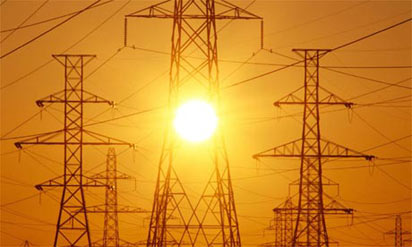
THE ongoing public row between the Minister of Power, Works and Housing, Babatunde Fashola, and the Power Distribution Companies over the state of electricity supply in the country has once again brought to the fore the depth of the crisis that has hit the sector close to five years after it was privatised. It is also a confirmation of the failure of the policies of the current government on power and the need for an alternative approach to salvage the situation.
Charting a new course was obviously what Fashola was trying to do recently, but he ended up riling the DisCos, who berated him in no small measure for allegedly misrepresenting facts to portray them in a bad light. After spending a good while of his close to three years in office as minister providing excuses for the gross ineptitude and underperformance of the DisCos, it was surprising that he launched a scathing attack on the firms, asking them to shape up or ship out. Apparently, like most Nigerians, he has seen through the maze of incompetence of these operators.
Among a broad range of issues Fashola based his criticism on were the DisCos’ inability to meter consumers, resulting in their resort to the fraudulent practice of estimated billing; their unwillingness to receive electricity from the generation companies, which serves as a disincentive for further generation, and the huge indebtedness of the DisCos to the other members in the power delivery chain. This is estimated at N859 billion. For these reasons and more, the minister called on the regulatory authority, the Nigerian Electricity Regulation Commission, to crack down on the DisCos.
Of course, the DisCos have always been the weakest link of the entire electricity supply value chain. They can be fingered in practically every troubled spot in the sector. While the customers accuse them of failure to provide meters, leading to the generation of exorbitant and arbitrary bills, even when power is not supplied, the Nigerian Bulk Electricity Trading Company, which guarantees purchase of bulk power from the GenCos and sells to the distributors, complains of the DisCos not remitting money due to it after the sales.
Available records indicate that over 50 per cent of the 7.5 million identified electricity consumers have not yet been metered and it has been so for a long time. Even the Speaker of the House of Representatives, Yakubu Dogara, had cause to complain recently about his house in Bauchi, which had no occupant, but was being credited with an outrageous monthly bill of N80,000. This issue has prompted the House to come up with a bill, which has passed its Second Reading, to criminalise estimated billing.
But the DisCos would take none of the allegations lying down. “It is with regret that we are compelled to respond to the significantly distorted picture that has been painted of the electricity distribution companies by the minister,” Sunday Oduntan of the Association of the Nigerian Electricity Distributors said. According to him, the minister’s arguments were “disingenuous” and “inconsistent with facts.” After putting up a spirited but largely unconvincing fight trying to rebut Fashola’s charges, especially for those who are saddled monthly with estimated billing, the DisCos said that efforts were on to “improve the accuracy of the estimated billing methodology.”
It is very disappointing that the DisCos, which have flouted every deadline for the provision of meters to electricity consumers, would claim that they were working on how to improve the accuracy of estimated billing when the talking point should be timelines for its complete eradication. How would the DisCos feel, for instance, if the customers were the ones determining the “accuracy of the estimated billing methodology”? Would they insist on estimated billing as they are doing now? What the customers are demanding is the right to pay only for the power they consume and not what someone ensconced in a cosy office somewhere determines they should pay; and that is not too much to ask.
Fashola has found himself in this embarrassing situation because of years of choosing to treat operators committing outright fraud with kid gloves. At a point, he was accusing customers of not willing to pay, instead of working out how they could pay only for services rendered. On the issue of reviewing the privatisation contract and bringing in those with the capacity and wherewithal to drive the sector, he had insisted that it was not feasible because it would send a wrong signal to the outside world, portraying Nigeria as a country that did not respect contracts.
But when a contract keeps the country perpetually on its knees, there is no reason why it cannot be reviewed. What matters most is national interest. Was the power privatisation process done in the best interest of the country? Given the havoc it has wreaked on the economy, the answer is a resounding no.
Fashola coming out now to complain is an admission that the government has not delivered. This administration has spent most of its tenure without a major achievement in the power sector squarely because it failed to immediately review the power asset sell offs. In his criticism of the DisCos, Fashola promised to “find solutions and substitutes as we have seen in other sectors.” That is the way to go. The government has to persuade those who cannot cope with the massive investment needed in this sector to surrender their shares.
This will pave the way for targeted investors with the wherewithal and track record in the power sector to take over. Continuing to pamper this set of investors will amount to doing the same thing and expecting a different result. It is not going to work.
END

Be the first to comment